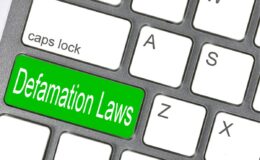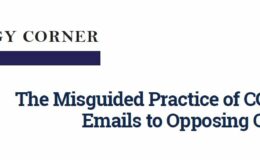Judge’s Guide to Social Media
- By : Cbh
- Category : Ethics, Social Media
The Fourth District Court of Appeal ruled yesterday that it was grounds for disqualification if a judge was Facebook-friends with the prosecutor. In Pierre Domville v. State of Florida, a criminal defendant moved to disqualify Judge Andrew Siegel because the prosecutor was one of the judge’s friends on Facebook. The Court relied upon Judicial Ethics Advisory Committee Opinion 2009-20, which notes that such public display of connection creates the appearance of impropriety.
So what is a judge to do? The quick-and-clean option is to de-activate all social media accounts. That may not be desirable. The more reasonable option is to revisit social media accounts and determine if they can be open to anyone so that there is no acceptance or rejection of contacts. Ironically, Facebook (like Twitter) has a fairly easy solution: open a fan page so that anyone can follow you (obviously, the content on an open fan page is likely a bit less personal than what you might share in your circle of Facebook friends). Contact your current Facebook friends explaining that anyone who might reasonably appear in front of you is going to be de-friended (no offense). Leave the “private” Facebook account for personal and family contacts who will not appear before you.
UPDATED (9/15/12): Daily Business Review’s “Judges React to Fourth DCA Opinion Over Facebook Friendships.”


